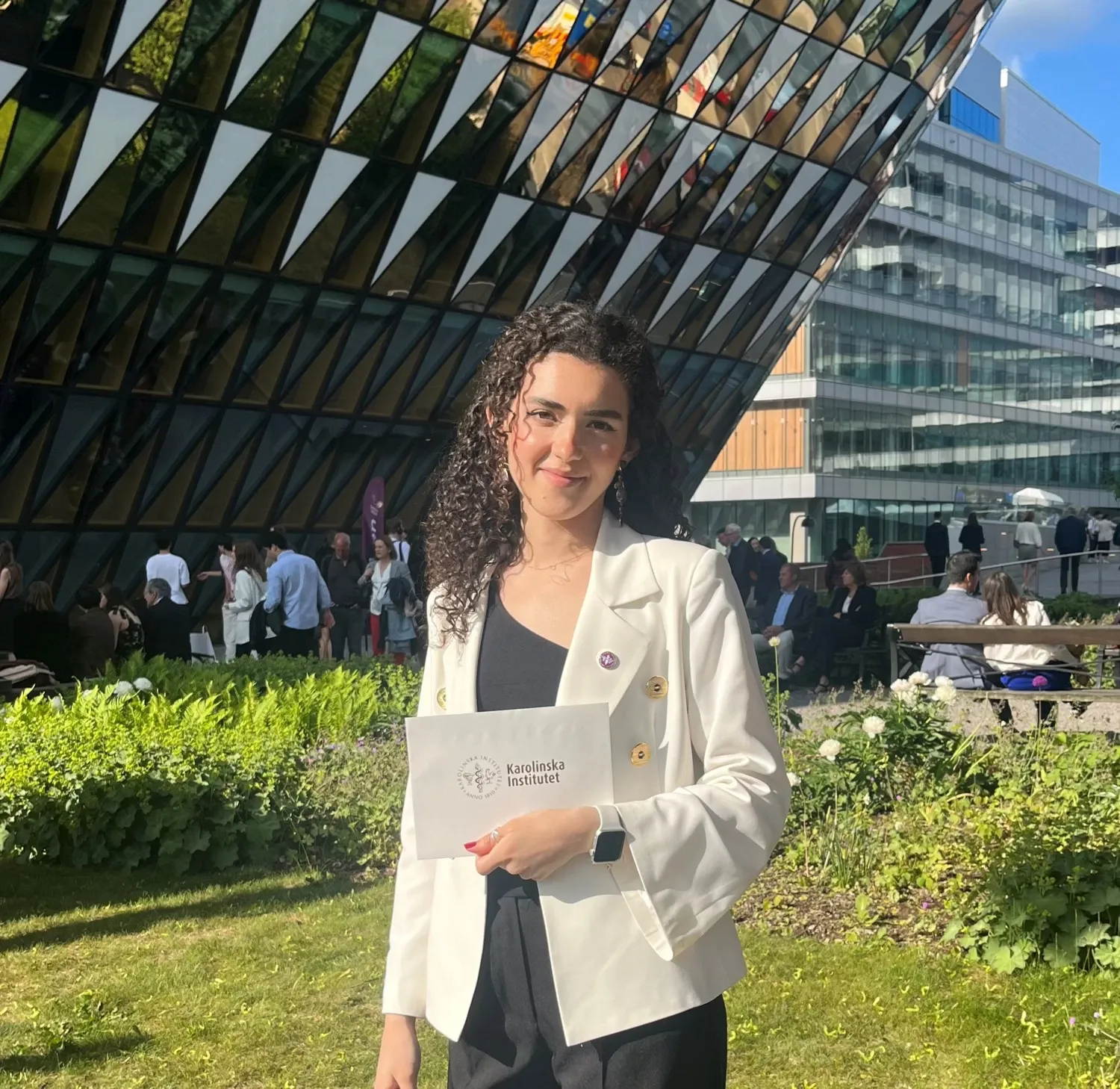Toxicology alumna Maria is pursuing a career in the pharma industry to have a more direct impact on patients
Name: Maria Gonzalez Machado
Based: Warsaw, Poland
Year of graduation: 2023
Bergendorff scholarship holder in 2022
Current role: Precision Medicine Academy, Astrazeneca

What did you study as an undergraduate (bachelor)?
I have a background in Cell and Molecular Biology from the University NOVA of Lisbon SST (School of Science and Technology) because I have always been very interested about how the body functions on a smaller scale and how complex processes come into play so we can perform basic actions daily. Then I specifically developed an interest in regulation mechanisms and how these are altered on a diseased state.
Why did you choose the Master programme in Toxicology?
I chose the master’s in toxicology because I wanted to further understand how all sorts of exposures have an impact on human’s normal function, again with a high interest molecular and cellular mechanism of toxicity. I also wanted to challenge myself by going abroad, out of my comfort zone and also to expand my knowledge beyond biology since toxicology is a very multidisciplinary field.
Where did you conduct your MSc thesis and what was it about?
I conducted my thesis at IMM, KI specifically in a collaboration project between Maria Kippler (Unit of Metals and Health) and Emma Wincent (Unit of Systems Toxicology). My thesis focused on understanding the toxicity mechanisms of heavy metals and inorganic compounds on development. This project combined mechanistic data from zebrafish embryo as well as epidemiological data.
The zebrafish embryos were used as the model to screen for developmental toxicity, to obtain molecular queues from RNA sequencing about the toxicity mechanisms of the exposures and understand the toxicokinetic profile of these metals. On the other hand, I also performed statistical analysis on data from a mother-child cohort which investigated the morphological outcomes of early life exposure to heavy metals.
I would say this was a unique project since it involved the integration of preclinical and epidemiological data giving me a broad overview of the problem being investigated from both a laboratory and populational point of view.
How did the Bergendorff summer internship support your research training?
The Bergendorff internship was definitely a great experience where I learned relevant laboratory techniques used in molecular toxicology as well as data analysis. In addition, I developed and improved skills such as independence, critical thinking, problem solving, communication, adaptation, and time management.
These were key skills that I apply in my current position daily, since I need to quickly adapt to ongoing projects and become independent, collaborate within a multidisciplinary team, manage my time effectively across different tasks and always apply scientific and critical thinking in my decision making.
Looking back on your time at KI and the Master programme in Toxicology, what is the most valuable thing that you learned?
To me it was very valuable to learn how to critically evaluate toxicity data considering different factors, for instance the impact of toxicokinetics on toxicodynamics rather than evaluating these two separately.
It was also very relevant to learn about up-to-date regulatory measures, to be aware of the submission and approval process of new chemicals and drugs, and to know where to find information about new regulations from European (or American) agencies i.e. which websites to use and what information to look for.
I found it extremely important to learn how to collaborate and communicate in multicultural and multidisciplinary teams, since that mimics most work environments. All the workshops about group dynamics were crucial for this process.
Where are you and what are you doing now?
I am working at Astrazeneca in Warsaw (Poland) within the Precision Medicine and Biosamples function, specifically in the Precision Medicine Academy. The focus of our function is to support global R&D with companion diagnostics for our medicines to enable patients to receive the treatment where they are most likely to benefit. In the academy I will rotate round the different teams within Precision Medicine and Biosamples, learn about all aspects of the development and regulatory approval of diagnostic tests and work with a multidisciplinary global team on a wide range of project activities.
What made you decide on this career?
The main two reasons were wanting to obtain experience in the industry and move towards clinical work. All my previous work experience has been in academic research, so I wanted to learn more about the other career pathways available. I also wanted to learn about and be involved in clinical trials, drug and diagnostics development. Ultimately, I wanted to have a more direct impact on patients and meeting their needs to provide them with the best outcome possible.
